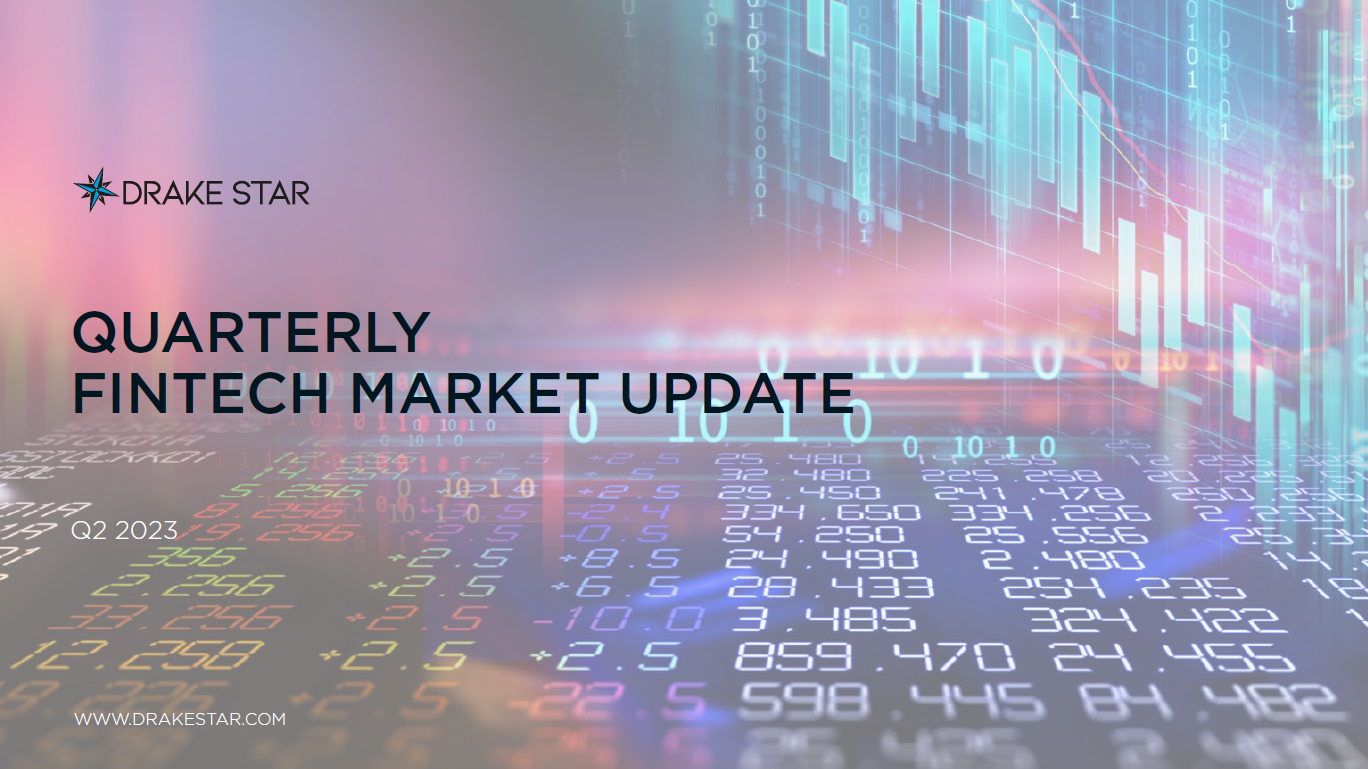News
Global Fintech Market Update | Q2 2023

For the second 2023 edition of our quarterly FinTech Market update we provide a comprehensive overview of the FinTech landscape, as well as a deep dive into relevant sub-verticals, namely: payments, insurtech, wealthtech, core banking & lending, financial data, blockchain & crypto. We also analyze the current market dynamics for M&A, private placements and IPOs and compare them over time.
These are some of our key takeaways for Q2 2023:
- Despite lower M&A and private placement activity in Q2 2023, both public B2B and B2C FinTechs experienced positive share price performance, with gains of +5.6% and +6.0%, respectively
- Private placement volume fell sharply to $7.8bn in Q2 2023, a decline of 58% compared to the average of the last four quarters
- Rising cost of capital and less focus on cash-burning companies, coupled with overall market uncertainty are driving institutional FinTech investors towards sub-$100m investments
- In contrast to the overall private market sentiment, investment activity in the payments sector picked up with large M&A deals such as the acquisition of Moneygram by Madison Dearborn ($1.8bn) or the Series B funding of BillGO led by BankTech Ventures ($94m)
Julian Ostertag, Managing Partner and Member of Global Executive Committee at Drake Star, says: “For FinTechs, the market environment is still challenging. But despite lower M&A and capital raising activities, both B2B and B2C FinTechs experienced growth in share prices. We also observe strong investments in the industry – even though investors are more discerning in their decisions. To sum it up: It is a volatile and challenging market, but there are also positive developments and good deals still get done.”
We’re also looking back at the recent Insurtech Symposium in Cologne and recap some of the key conference topics, among them:
- Embedded insurance represents both a threat and an opportunity. On one hand, it is becoming a significant sales channel, which gives insurers access to a high number of customers with high conversion rates. On the other hand, insurers risk becoming a mere capacity provider to non-insurers and turning insurance into an even more commoditized business.
- IoT: Connected devices allow insurers to interact more frequently with their customers and offer new services based on the collected data. IoT enables insurers to identify risks more accurately and make real time predictions.
- Mental Health: Insurers responded expediently to the surge in mental illness catalyzed by the COVID-19 pandemic, which is reflected by the increasing number of insurers offering mental health coverage, but also by service and prevention innovations such as telemedicine and mental health tracking apps.
Download below to access the full report including the recap and many other valuable insights.
Download The Report
Get In Touch
Please search by region and sector so we can point you to the right member of our team.
|
||||||||||||||||||||||||||||
|
||||||||||||||||||||||||||||











